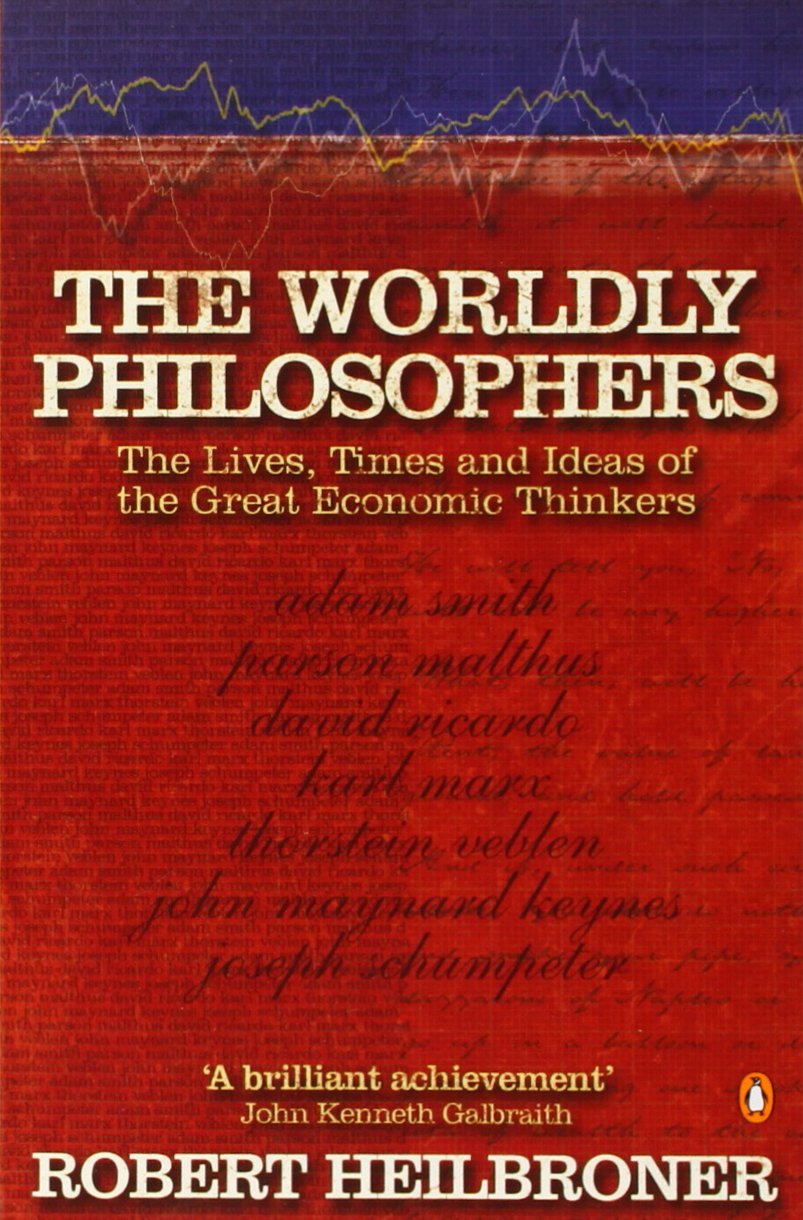About this deal
The Worldly Philosophers is a useful book — not only to college students, but to any person wishing an understanding of economics. Basically the book offers three benefits: What emerges from this is a principle that profit itself is not intrinsically bad, at least if it is generated in the name of the State, which is presumably representative of the Workers’ interests. After the publication of his ingenious work, Schumpeter served as commissioner on the nationalization of industry, an arm of the socialist German government, as well as finance minister of Austria.
The measure of the value of the ball is its price. How much is it sold for? How was the price determined and who ultimately gets a share of the price? While I intend to read some other generalist philosophy books as well, I recommend both books for readers who just want an overview or a foundation for further reading similar to what I’m undertaking. Robert L. Heilbroner (March 24, 1919 – January 4, 2005) was an American economist and historian of economic thought. The author of some twenty books, Heilbroner was best known for The Worldly Philosophers, a survey of the lives and contributions of famous economists, notably Adam Smith, Karl Marx, and John Maynard Keynes. the self-sufficiency of the nation through the utilization of raw materials from either England or her coloniesThe Wealth of Nations, which resembles an encyclopedia, is far more than a mere textbook on economics. One critic calls it "a history and criticism of all European civilization." Among a host of topics, it discusses the origin and use of money, apprenticeship, statistics, waste, the military, foreign trade, landlords, the clergy, royalty, farming, and "the late disturbances in the American colonies." The canny student of economy, however, cannot accept this cheerful prognostication without further delving, for a complete analysis of modern times requires a thorough study of more than Marx and Keynes. A third spokesman is necessary: the brilliant gadfly Joseph Alois Schumpeter (1883-1950), a spirited, histrionic Viennese aristocrat and Harvard professor, who saw capitalism in the twentieth century in terms of dynamic growth, yet he relegated it to destruction in the long run.
None of the three methods, or systems, exists in pure form. Systems practiced today in the United States, Great Britain, Japan, or the Soviet Union are better described as mixed economies, which contain elements of both the market economy and the planned economy. For example, within free enterprise there are obvious government-sanctioned monopolies, such as electric power companies, railroads, and communications systems. The third stage of capitalism began in the last quarter of the nineteenth century. Because of the control and direction of industry by financiers, this stage is known as financial capitalism, with profits coming from investing. Thus, these two evolutionary laws form an endless chain for society through which progress is inevitable. Even though the Law of Population depresses wages toward a subsistence level, it never arrives there. Conditions steadily improve, resulting in further accumulation for further investment. What is the end result? Not a utopia, but the economy, if left alone, will ultimately reach its "promised reward" — a world where poverty and wealth balance each other. In the rest of this review, I want to summarise the main concepts and explain what I got out of the book. But how can the individual's selfish desires benefit society? What stops greed from overwhelming the public, resulting in ruthless exploitation by profiteers? Smith answers that the individual, in the process of providing for personal interests, unintentionally contributes to the economic wellbeing of society. Therefore, the second law of the market is competition. The individual who overcharges for products soon learns that competitors will take away business by offering more reasonable prices. If wages are too small, workers will hire out to another employer who will pay more for their services. Thus, selfish motives are tempered by interaction, resulting in social harmony.We ask experts to recommend the five best books in their subject and explain their selection in an interview. The Caterpillar needs opposing forces, just like humans need opposing thumbs. We couldn’t work, if we didn't have them.
Shit happens in this system, but that’s like saying that football players occasionally do a hamstring. I’d never heard of Joseph Schumpeter before reading this – I’m probably unlikely to read very much more about him. The last version of this book seems to have been written in 1992 – you might think there would be more said about neo-liberalism or rather radical free market economics. There is the briefest mention of Milton the Monster – no more than a dig at the fact that his radical free market views weren’t exactly what he won his Nobel Prize for – but given this has become the new orthodoxy you might expect more space dedicated to this theme here.Minimum wages were set. Working conditions were protected by law. Workers suffered less misery. They got a little more comfortable and lost their revolutionary fervor. At this point, self-interest becomes a factor. Since there are higher profits in the glove business and a greater need for gloves, new producers begin manufacturing gloves. Workers move from shoe factories to glove factories. The result is that glove production rises and shoe production falls. Before long, the market achieves a balance. As the supply of gloves grows to meet demand, glove prices decrease. As the supply of shoes falls below demand, shoe prices rise. This price increase stimulates shoe production. Therefore, the opposing forces of self-interest and competition balance the market.
 Great Deal
Great Deal 